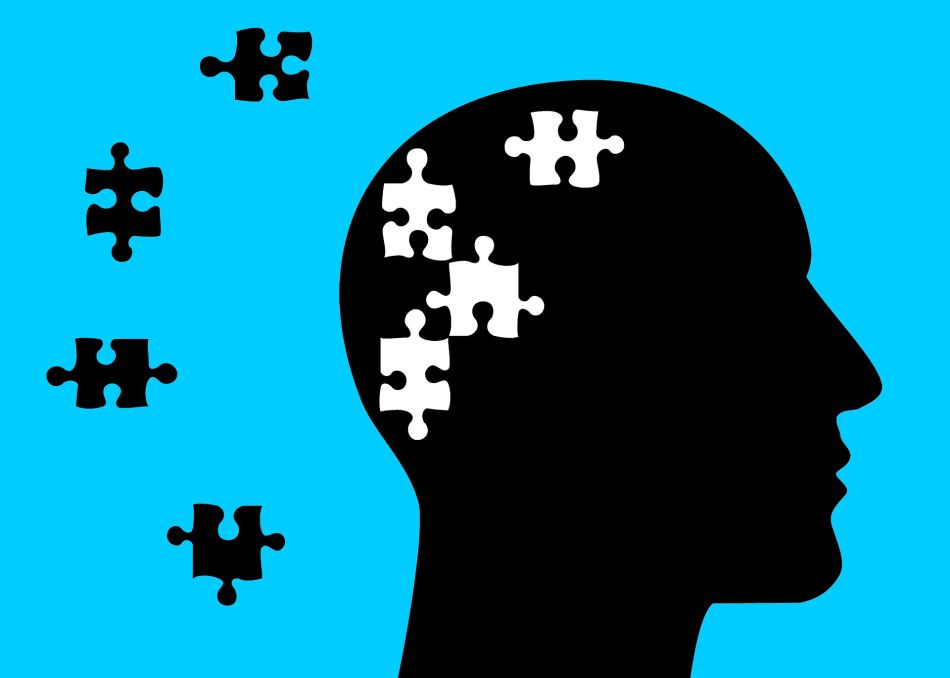It's All Right if You Can't Remember
Shilo Zylbergold | Best Medicine

image by: Tumisu
Time moves in one direction, memory in another - William Gibson
Memory. Remember when you still had one? We’re not talking about tragic and debilitating conditions such as Alzheimer’s or dementia here, but rather those small memory lapses that make you forget the names of people you know or where in the world you left your reading glasses this time.
It’s said that nostalgia ain’t what it used to be but I can’t say that I really remember if it ever was. All I know is that there are vast pieces of memory that flit in and out of my head like butterflies high on cannabis pollen. And it’s not just me. All around me I hear others, both old and young, complaining about it. Basically, we are all standing in front of an open refrigerator door wondering what we are looking for and how long we’ve been standing there with blank looks on our faces and no trace of an answer in reach.
It hit me, personally, just the other day. I was putting a new roll of toilet paper on the holder in the bathroom when I suddenly realized that I could not remember whether I normally pull the sheets off over the top of the roll or up from under the bottom. I tried both ways and neither felt familiar. Not that it really mattered, but in the end I left the roll sitting on the bathroom counter in hopes that my memory would be jarred back to normal with the passage of time.
And it’s not as if it’s just one kind of memory that is eluding us. Memories come in many sizes and flavors. There’s short term like where you left your keys that you just were holding in your hand. There’s long term such as the name you gave to your very first teddy bear that you refused to sleep without even into your twenties.
You’ve got your motor memory, semantic memory, explicit and implicit memory. There are even those believers in reincarnation who claim to have past lives memories. It’s strange how the very same people who can’t remember what they ate for lunch can go into vivid detail about what kind of boots they wore into battle when they fought against the Normans at the Battle of Hastings in 1066.
My least favorite memory loss issue involves forgetting to turn the lights off when leaving a room. No matter how many times I remind myself, more often than not I will waltz mindlessly out of a room with the lights still blazing for no purpose at all. This is coming from someone who used to be the conscience of the world and was always noodging the kids to turn off the lights so as not to be needlessly wasting money on electricity bills or destroying the planet by leaving the light switch turned on for an unnecessary thirty seconds.
If you are seeking someone or something to blame for your loss of memory, you need look no farther than your own brain. Indeed, there are a great number of parts and regions in the anatomy of the brain that control and manage a variety of functions dealing with memory. For instance, the hippocampus, a seahorse-shaped structure located in the medial temporal lobe of the cerebral cortex, is in charge of both spatial navigation and long term memories. A faulty hippocampus may be the reason they say we can never go home again. We probably can’t remember where home is and, even if we did, we would lose our way getting there.
Another group of structures near the centre of the brain, the basal ganglia, aid in remembering learned motor activities and modify muscle movements thereby maintaining posture. If our basal ganglia were to gang up and desert us, not only would we forget what our fingers are supposed to do when we sit down to play the Moonlight Sonata at the piano, but we would probably trigger Gramma’s ire by slouching terribly while trying to remember.
The brainstem is the lowest part of the brain and it controls some of the basic functions such as breathing and heart rate. In males, it performs the vital duty of sending a reminder to put the toilet seat up before peeing (there is no known part of the brain in charge of reminding men to put the seat back down afterwards).
Recent neurologica research on memory loss has unearthed complex cellular systems in the brain that have not yet been officially named. One such system, let’s call it the passcodious oblongata, is responsible for storing every computer password you have ever used and making sure that you can retrieve the one you need only after exhausting all the ones that won’t work. Although all the passwords are safe from bionic hacking, they can be wiped out by catastrophic events such as a large sneeze.
It is a well-known fact that the brain is quite symmetric and can be divided longitudinally into two hemispheres which are responsible for diverse duties and functions. The corpus callosum is that part of the brain which allows the left side to communicate with the right. Forgetting which shoe goes on which foot is probably not the result of a faulty corpus callosum but not remembering which goes on first, the shoe or the sock, can be attributed to a wonky miscommunication.
Nobody asked me, but I truly believe that forgetfulness is a useful survival tool. If we remembered everything we had ever learned or experienced in our lives, our brains would be so overloaded with information that we would be rendered paralyzed in both thought and action. Basically, it would be comparable to having our biological hard drives filled to capacity. It is the ability to have most of our memories automatically deleted that allows us to prioritise the ones that are vital to our well-being and survival.
A friend once told me that if you remembered everything you ever learned, it would be about as useful as having a map the same size as what it is a map of. I’m not sure I understand what that means, but I’ll have to remember to get back to it as soon as I figure out the toilet paper roll conundrum.

Introducing Stitches!
Your Path to Meaningful Connections in the World of Health and Medicine
Connect, Collaborate, and Engage!
Coming Soon - Stitches, the innovative chat app from the creators of HWN. Join meaningful conversations on health and medical topics. Share text, images, and videos seamlessly. Connect directly within HWN's topic pages and articles.









.jpg)






